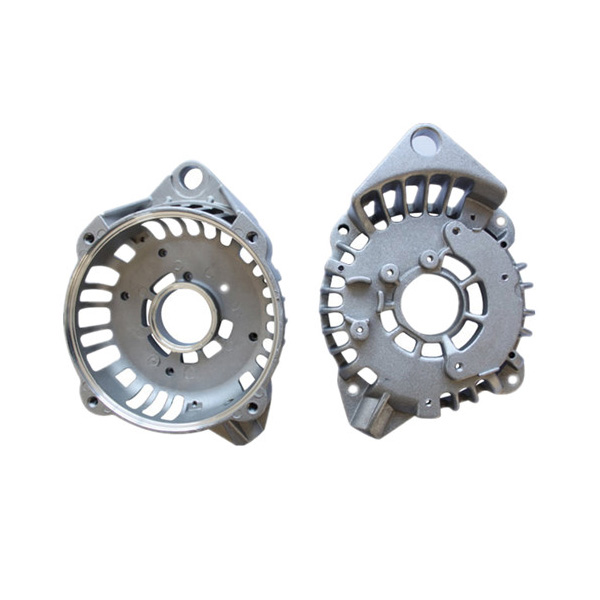Mobile:+86-311-808-126-83
Email:info@ydcastings.com
sludge pump impeller
Understanding Sludge Pump Impellers Key Features and Considerations
In various industrial and municipal applications, sludge pumps play a crucial role in managing and transporting viscous and abrasive materials, such as wastewater, sewage sludge, and other sediment-laden fluids. At the heart of these pumps lies the impeller, a vital component that determines the efficiency, performance, and suitability of the sludge pump for specific applications. This article explores the essential characteristics of sludge pump impellers, their design considerations, and their significance in ensuring reliable operations.
What Are Sludge Pump Impellers?
An impeller is a rotating component enclosed within a pump casing, comprised of blades or vanes that convert rotational energy from the pump motor into kinetic energy, thereby propelling the sludge through the system. In sludge pumps, impellers are specifically designed to handle thick, heavy fluids that may contain solid particles, which presents unique challenges compared to standard water pumps.
Key Features of Sludge Pump Impellers
1. Durability and Material Choice Sludge impellers must be constructed from robust materials resistant to corrosion and abrasion. This typically includes stainless steel, cast iron, or polymers that can withstand harsh conditions and extend the lifespan of the pump.
2. Design Variations Sludge pump impellers can be single-channel, multi-channel, or vortex designs. Single-channel impellers are suitable for less viscous sludge, while multi-channel designs can handle more substantial volumes and higher viscosity. Vortex impellers minimize wear and are ideal for fluids with large solids, as they reduce the likelihood of clogging.
3. Impeller Diameter and Blade Shape The diameter and shape of the blades influence the flow rate and pressure developed by the pump. Larger impellers typically produce a greater flow rate, while the angle and curvature of the blades affect the efficiency and type of flow produced.
4. Specific Speed and Efficiency The specific speed of an impeller correlates to its ability to move fluid efficiently. Impellers designed for sludge pumps typically operate at lower specific speeds to ensure effective handling of high-viscosity and high-solids content fluids.
Design Considerations
sludge pump impeller

When selecting a sludge pump impeller, several considerations must be taken into account to ensure optimal performance
1. Sludge Characteristics Understanding the properties of the sludge, including viscosity, solids concentration, and particle size, is essential. These factors influence not only the design of the impeller but also the overall pump selection.
2. Flow Requirements Determining the required flow rate and head (pressure) is critical for selecting an appropriate impeller. The pump's duty cycle and operational conditions will dictate how the impeller must perform.
3. Pump Configuration The arrangement of the pump, including whether it’s horizontal or vertical, will also affect the choice of impeller. For instance, vertical pumps often require a different style of impeller to ensure proper fluid dynamics and maintain efficiency.
4. Maintenance and Replacement Regular maintenance of the pump and impeller is essential for performance. The design should allow for easy access for inspections and replacements, minimizing downtime and operational disruptions.
Importance of Impeller Selection
Selecting the right sludge pump impeller is vital for ensuring the efficiency and longevity of the pump system. An inadequately designed impeller may lead to increased wear and tear, higher energy consumption, and potential pump failures. Moreover, improper selection can result in reduced efficiency, causing operational costs to soar and impacting overall system productivity.
Conclusion
The impeller is a critical component of sludge pumps that must be carefully chosen based on various operational factors. By understanding the specific requirements of sludge applications and the features of different impeller designs, operators can significantly enhance the reliability and performance of their pumping systems. Proper maintenance and informed selection processes will ultimately lead to greater efficiency, cost savings, and improved management of challenging sludge materials in industrial and municipal settings.
-
Impeller Technology That Powers Precision in Pump SystemsNewsMay.22,2025
-
Valve Durability Begins with Quality Cast Iron ComponentsNewsMay.22,2025
-
Performance Cooling with Advanced Automobile Water Pump SolutionsNewsMay.22,2025
-
How Motor Housing and Oil Pans Shape Engine PerformanceNewsMay.22,2025
-
How Metal Castings Drive Modern Manufacturing EfficiencyNewsMay.22,2025
-
Exploring the Engineering Behind Valve Body CastingsNewsMay.22,2025











